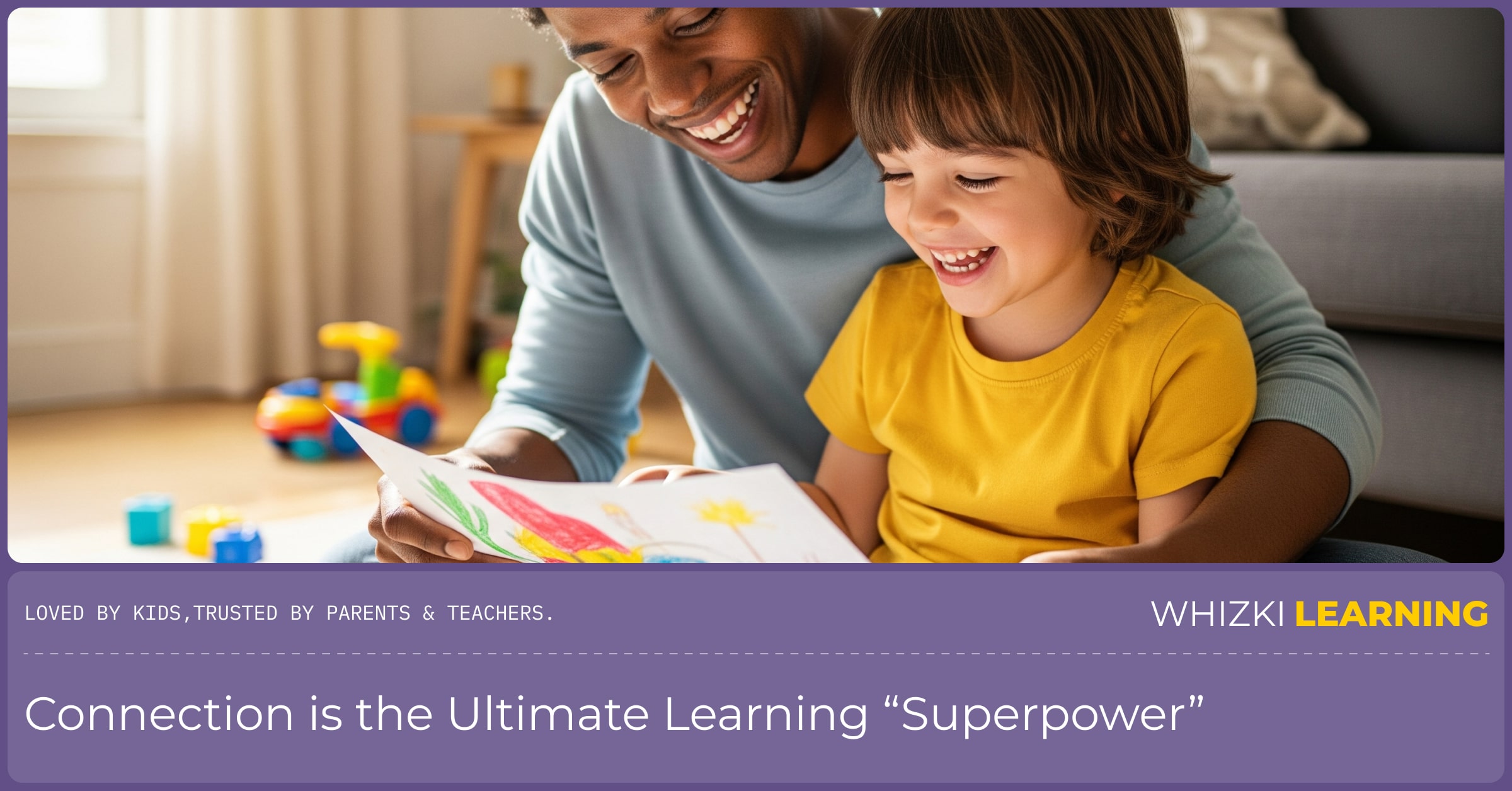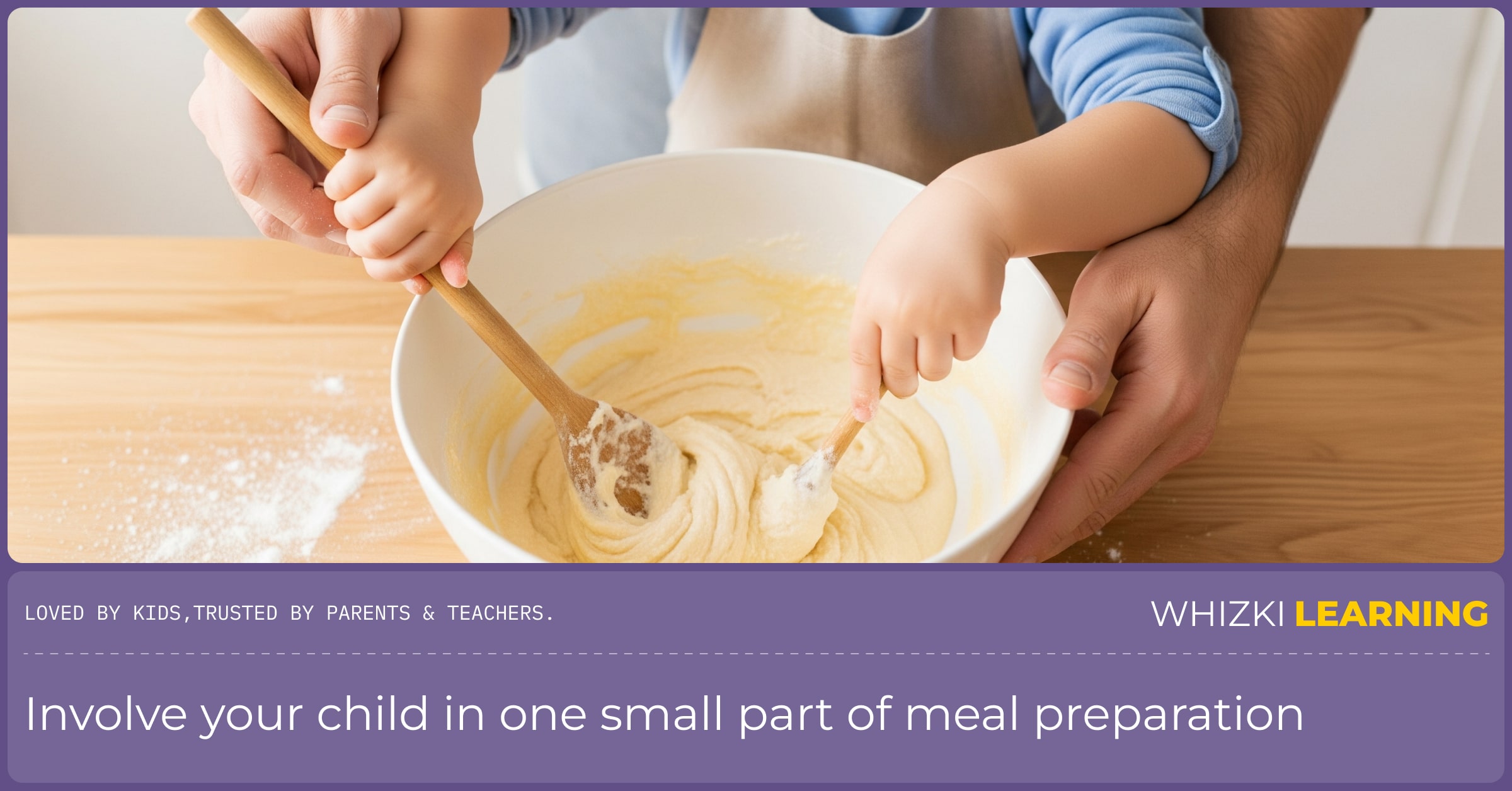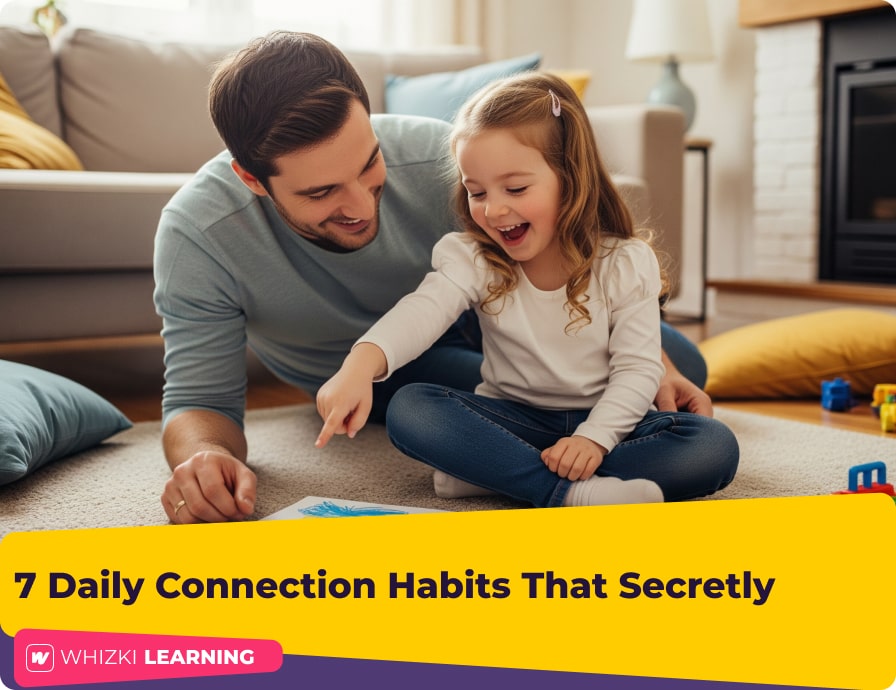Let’s talk about a phrase that brings a unique kind of pressure to modern parenting: 'quality time.' We see it everywhere. We feel this immense need to schedule it, to optimize it, to make sure our 30 minutes of dedicated, floor-time play are as enriching as possible. And if we don't hit that quota for the day? We're left with a lingering feeling of guilt, a sense that we're not doing enough.
What if we could gently set that pressure aside? What if the most powerful learning booster for our children wasn't an event we had to schedule, but a feeling we could cultivate in the small, in-between moments of our day? The truth is, a child's brain doesn't learn best when it's being 'taught'-it learns best when it feels safe, seen, and connected to you.
That feeling of connection is the ultimate superpower. It's the fertile soil from which all cognitive skills-focus, resilience, curiosity, and a love for learning-can grow.- Dr. Elias Keltner, Family Therapist
This guide is about shifting our focus from 'quality time' to 'connection habits.' These are seven simple, everyday rituals that weave learning and bonding together so seamlessly, you won't even notice it's happening. This is how we help our children thrive, not by doing more, but by being more present in what we're already doing.
Why Connection is the Ultimate Learning 'Superpower'
Before we dive into the habits, let's look at the simple science. When a child feels connected and emotionally safe with you, their brain is flooded with oxytocin-the 'cuddle hormone.' This chemical tells their nervous system, 'You are safe. You can relax. You can explore.' In this state, the prefrontal cortex, the part of the brain responsible for higher-level thinking, problem-solving, and focus, is fully online and ready for action. Learning feels effortless and joyful.
Conversely, when a child feels disconnected or stressed, their body produces cortisol. This shifts the brain into 'survival mode.' Its only focus is on finding safety, not on learning the alphabet. This is why a simple academic task can lead to a meltdown when a child is feeling emotionally dysregulated. By prioritizing connection, we are creating the optimal brain chemistry for learning to occur naturally.

7 Daily Connection Habits (That Are Secretly Skill-Builders)
1. The 'Welcome Home' Reconnection
The Habit: The first five minutes after you or your child walk in the door. Before unpacking bags, before checking your phone, before asking 'How was your day?', get down on their level, make eye contact, and just be with them. Give them a hug. Let them tell you about the rock they found, or let them just be quiet with you.
The 'Secret' Skill: This powerful ritual calms the nervous system after a long day of separation and reinforces a secure attachment. It tells your child, 'You are my priority.' This emotional regulation is the foundation for focus. If you're struggling with after-school meltdowns, making this your non-negotiable first step can be a game-changer. For more on this, check out our guide on managing big emotions.
2. The 'Kitchen Counter Classroom'
The Habit: Involve your child in one small part of meal preparation. It doesn’t have to be the whole meal. Can they tear the lettuce for the salad? Can they count the carrots? Can they stir the (cool) batter?
The 'Secret' Skill: This is a goldmine for development. They're practicing early math (counting, measuring), fine motor skills (stirring, tearing, pouring), and following multi-step directions. They are learning real-life skills that make them feel capable and important.

3. The '10-Minute Workbook Ritual'
The Habit: Find 10 minutes in your day-maybe after breakfast or before bed-to sit side-by-side with a workbook. The key is your attitude. This isn't homework. This is a special, cozy time. Put on some quiet music. Sit close. Let your child choose the page. Your only job is to be an interested, supportive partner.
The 'Secret' Skill: You are doing two things at once: you are building connection through shared attention, and your child is practicing vital school-readiness skills. The focused task of a preschool workbook can be incredibly calming for a busy mind. It's a structured way to practice the very skills we discuss in our guide to building concentration.
4. 'Reading as Cuddling'
The Habit: When you read a book, make it a full-body experience. Let your child snuggle into your side. Let them hold the book and turn the pages. Use funny voices. Stop and ask questions about the pictures. Don't worry about finishing the story; worry about enjoying the moment.
The 'Secret' Skill: You are associating books with feelings of warmth, safety, and love. This is the single most effective way to raise a lifelong reader. It also builds vocabulary, listening skills, and reading comprehension.
5. The 'Problem-Solving' Walk
The Habit: Go for a short walk around the block with no destination in mind. Your only goal is to notice things together. 'Wow, look at that bumpy bark on that tree!' 'I wonder where that ant is going?' 'Which way should we turn here?'
The 'Secret' Skill: You are building curiosity, observation skills, and foundational scientific thinking (hypothesizing, observing). You are also giving their 'big body' muscles a workout, which is essential for being able to sit still and write, as we covered in our guide to handwriting.
6. The 'Scribble Story'
The Habit: When your child shows you a drawing or scribble, instead of saying 'That's beautiful!', become a curious journalist. Ask questions. 'Ooh, tell me about this picture! What's happening right here? Where is this swirly line going?'
The 'Secret' Skill: You are valuing their process over their product. You are giving them powerful language skills by helping them narrate their own creative vision. This builds storytelling and pre-literacy skills far more effectively than praise.
7. The 'Bedtime Download'
The Habit: In the last few minutes before sleep, instead of asking 'How was your day?' (which usually gets a one-word answer), ask specific, open-ended questions. 'What was something that made you laugh today?' or 'What was one thing you did today that was a little bit hard?'
The 'Secret' Skill: This builds a powerful habit of reflection and emotional awareness (key SEL skills). It strengthens your bond by showing you care about the small details of their life, making them feel seen and heard.
Connection is Our Core Philosophy
At Whizki Learning, we believe that a workbook is more than just paper and ink. It's an invitation. It's a bridge between you and your child. It’s a dedicated, screen-free space where the noise of the world fades away, and you can focus on one simple, joyful task together. Our entire collection of engaging activity books for kids is designed to be a catalyst for these moments of connection, helping you turn ten minutes of 'practice' into a cherished memory.






